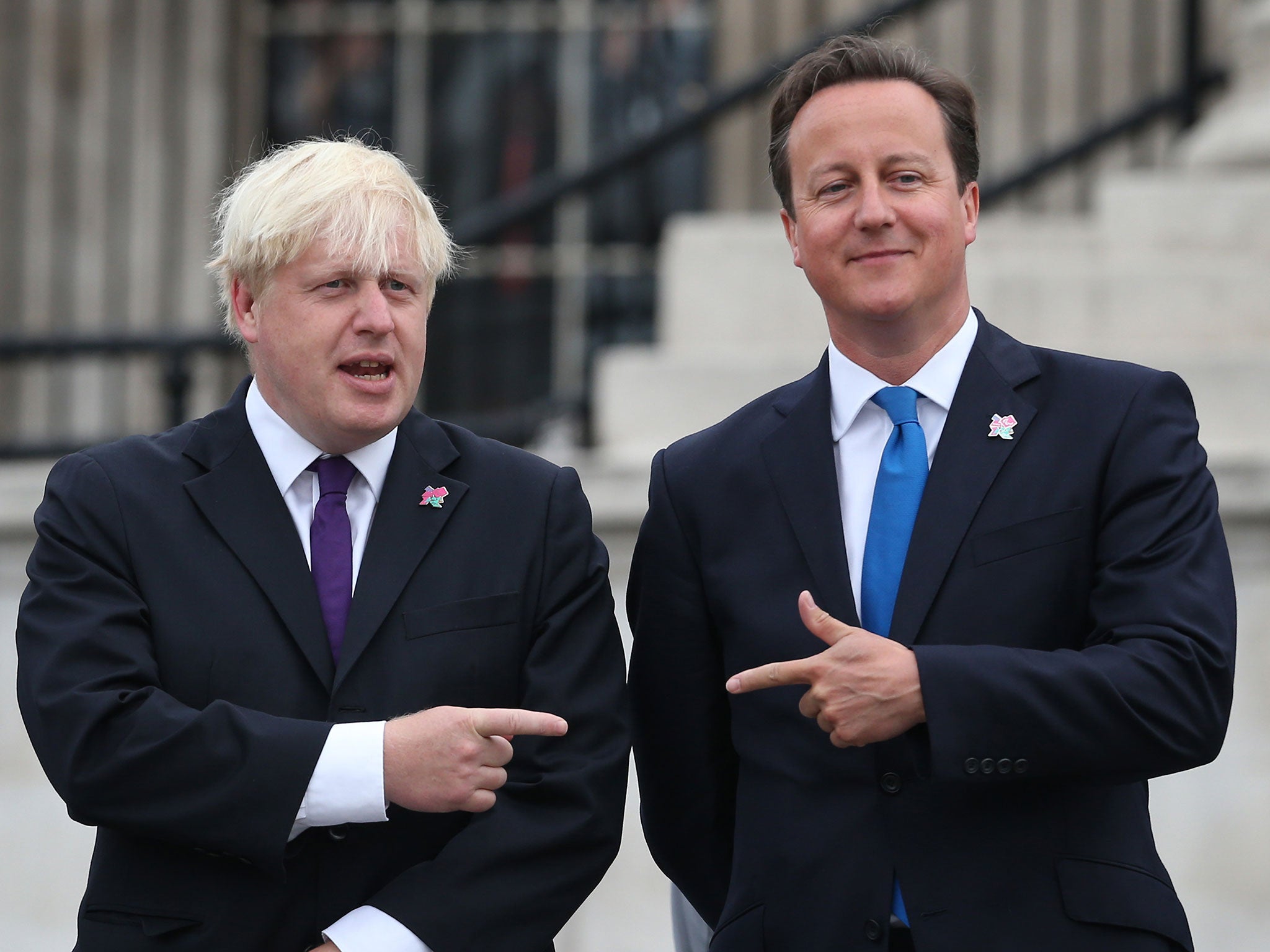Think that British politicians are morally superior to Trump? Brexit is here to prove you wrong
Brexit tactics of shock and awe are destroying British politics. We have five more weeks of the debate and politicians are already talking about Hitler

In British politics of 2016, nothing surprises.
A would-be Prime Minister compares the European Union to Hitler. A sitting Prime Minister implies that by leaving the European Union, we risk war on the continent. One of the main Brexit campaign groups posts a video describing refugees as “poisonous snakes”.
It may be that a diet of Twitter, comment threads, and news bulletins about Donald Trump has bludgeoned us into a kind of numb insensitivity to the outrageous. Whatever the cause, none of the recent developments in the EU debate have really shocked. And that realisation has worrying implications for political discussion in this country.
Remarkably this debate has five weeks left to run – and we’re already talking about Hitler. If the arguments become any more polarising, the long-term impact could be more damaging than any of the parties yet realise.

So far, both camps appear intent on out-gunning each other with ever more extreme warnings of the consequences of staying in or out. It is understandable in a way. The EU referendum is a once in a generation decision, of enormous weight. The still, small voices of calm were never likely to prevail when so many people’s political futures are at stake.
But there is a risk that this new politics of shock and awe becomes the new norm. Its corrosive effect is already on show. So wedded are some politicians to their chosen camp that we are seeing some extraordinary feats of mental acrobatics deployed by hitherto reasoned and thoughtful debaters.
Take Jacob Rees-Mogg (who, whatever one makes of his politics, is undeniably an intelligent chap) attempting to persuade an interviewer that Boris Johnson’s comparison of the EU with Nazi expansionism was “good history”, while attempts to justify taking in child refugees by invoking the Kindertransport of the 1930s were “nonsense”.
One suspects that if he were being intellectually honest, Mr Rees-Mogg would accept that both are imprecise, emotive and not especially helpful comparisons, designed to serve a political agenda. But, a committed Brexiteer, he felt so bound to that agenda that he was apparently willing to suspend his critical faculties and defend an extreme point of view.
Or examine David Cameron, apparently forgetting that only a few short months ago he was publicly stating that he could campaign for Brexit, claiming last week that he would “never be so rash” as to assume that European states could never go to war with one another again, therefore we ought to stay in. Consistency is a vital component of trust. But this debate is so big, the Prime Minister appears to have calculated, loss of trust is acceptable collateral damage.
The most egregious example being set, is however, Boris Johnson’s.
His EU-Hitler comparison was not just deliberately inflammatory, but also utterly contradictory of his own, previously expressed opinions. In his biography of Churchill, published only two years ago, he wrote that the wartime leader looked at the embryonic European Union “with a paternal pride”.
“It was his idea to bring these countries together, to bind them so indissolubly that they could never go to war again – and who can deny, today, that this idea has been a spectacular success?” he asked.
A spectacular success for peace and prosperity, which also resembles the machinations of Hitler? Can one man hold such contradictory views? Or is he so committed to his own side of this debate for reasons of personal gain that consistency, integrity and honesty go out the window?
There is a growing sense that some of the people involved in this debate seem to have forgotten that we will wake up on June 24th and, regardless, of the result, carry on working together. This is a particular problem for the Conservative Party internally – it is also a problem for the country.
Politicians adopting ever more extreme positions cheapens the currency of moderate, balanced points of argument. Slowly, what was once extreme becomes the mainstream. Call it the Trumpification of politics. Before this EU debate, we might have thought we were immune to it in the UK. The evidence so far suggests we are anything but.
Join our commenting forum
Join thought-provoking conversations, follow other Independent readers and see their replies
Comments